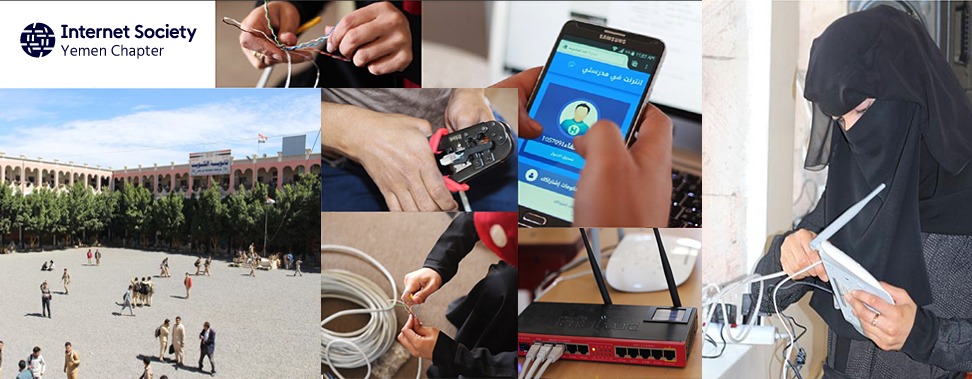As a country, Yemen is among the least with Internet connectivity in the Middle East. This is particularly troubling given the rise of Internet access across the globe. Furthermore, the youth in Yemen constitute the majority of the population yet are being left behind because of the lack of Internet access in schools due to poor economic conditions coupled with other priorities that supersede Internet access.
And due to the continuation of conflicts, the educational process in Yemen facing many challenges: shortages in the financial resources, the rehabilitation of partially damaged schools, and the printing of school textbooks. Currently, there are about 2 million school-age children are out of school and more than 1,600 schools are currently unfit for use due to conflict-related damage, hosting of IDPs, or occupation by armed groups.
While schools in Yemen facing these challenges, that does not mean that Internet access should not be a high priority. On the contrary, we believe that the Internet could be a strong incentive and means of support to help students acquire knowledge and be motivated to study online and compensate for the lack of books and other study material.
Students need the Internet because it is the most effective way to share ideas and experiences and complement regular traditional education. Similarly, teachers need to be informed of the new pedagogic methods and teaching material that allows them to enhance their teaching methods and improve their curricula. Teachers can also use the Internet to exchange views with each other and formulate common ideas to present to the government. This is why Yemen Chapter strongly believe in connecting schools to the internet will have a long-term positive impact.
Thanks to Beyond the Net Funding Programme support we are implementing Internet@MySchool, a project which aims to connect to the Internet four secondary school’s senior classrooms in two cities (Sanaa, and Aden) and provide training and booklets to ensure that the Internet services the project provides are used effectively by students and teachers in those schools.
The project will select one boys school and one girls school in both cities. Those schools are going to be a pilot project, which we hope will be replicated across the country and the region.

The project team, in the last five months, has worked hard to identify the selected schools to implements the project through a selection and evaluation criteria. The team has completed the following activities:
- Installed the Internet and network infrastructure in four schools in Sana’a and Aden.
- Produced and printed 3000 copy of a booklet in Arabic language with illustrations will be used in the training sessions for students on the basics of internet and how to use internet as a tool for education. The booklet will be distributed to students and staff in the selected schools and could be reprinted and used in many different settings and contexts if resources are available.
- Created a website for the project with login authorization to each of the schools to allow students and staff posting their own experiences, photos, questions, and other contributions and for the project to promote its work. Additionally, students can communicate with their teachers and colleagues to discuss and share educational resources or materials.
- Created Social media accounts such as facebook page for disseminating project activities among public audience.
- Video showing some activities of the project
- Video promoting the website of the project
- Preparing for the training sessions in the next few weeks.
Share this story
If you like this story, please share it with your friends. That would tremendously help in spreading the word and raising the visibility of this project. Help more people understand how the Internet can change lives.
We are interested in your project
We are looking for new ideas from people all over the world on how to make your community better using the Internet. Internet Society “Beyond the Net Funding Programme” funds projects up to $ 30.000 USD.
Find out more about the programme
Stay tuned for the upcoming blog and follow our stories on Twitter
